Leaders to Learn From 2019
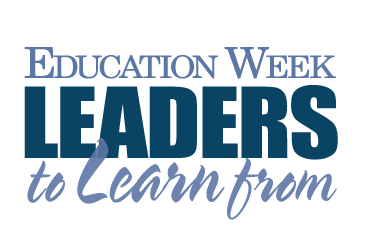
Each year in Leaders To Learn From, Education Week identifies some of the nation’s most exceptional school district leaders and spotlights their extraordinary impact. This collaborative event is designed for K-12 school-district administrators. Through workshops, case studies, and Q&A led by this group of model administrators, participants will learn how other leaders are solving problems and driving change.… Read More ›
Finding Voice, Taking Action: Sociopolitical Development for Middle-Schoolers and Beyond
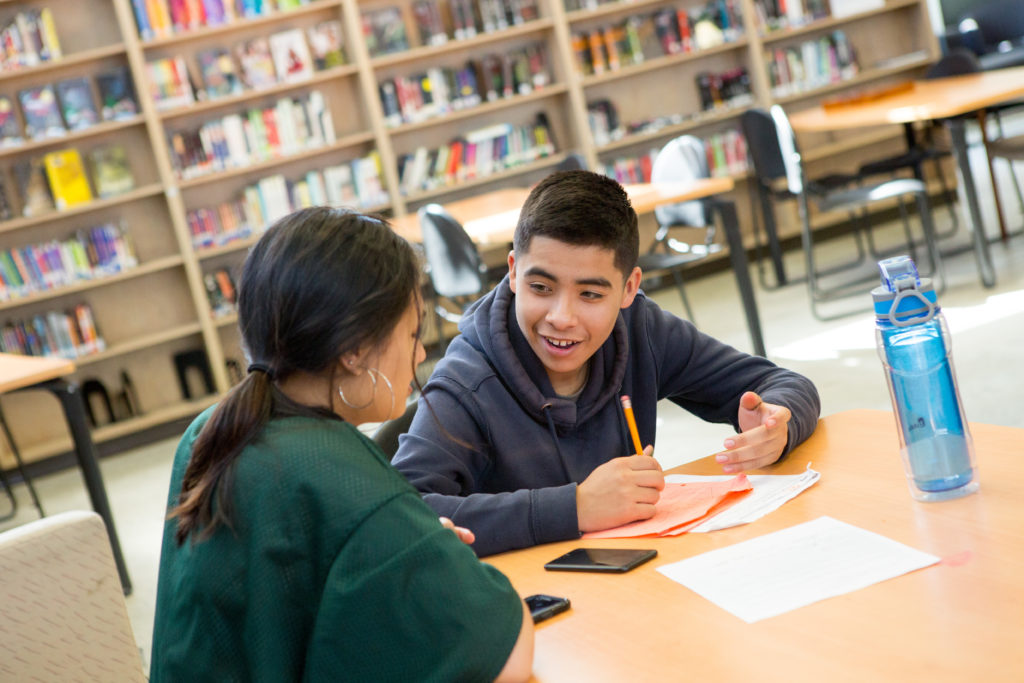
College pennants hang on the walls of a charter middle school and shout the names of academic institutions far from this western US city. “HARVARD,” one reads in big, block letters. “MICHIGAN,” “TEXAS,” “WILLIAM & MARY.” The charter school has gone all-in on college. Students start the day by gathering in a large room the… Read More ›
NMEF Board Member Deborah Jewell-Sherman Shares Her Perspectives on the Foundation’s Equity Journey
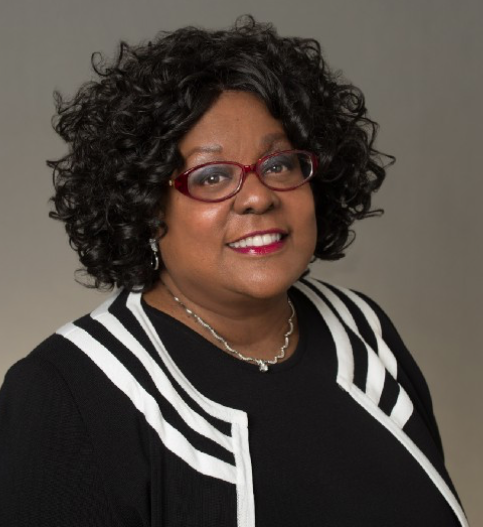
We had the chance to sit down with Nellie Mae Board Member Deborah Jewell-Sherman, who is the Gregory R. Anrig Professor of Practice in Educational Leadership at the Harvard Graduate School of Education. Can you tell me about your background — how has it shaped your own viewpoints and thoughts around racial equity issues in… Read More ›
Building Public Awareness: Framing That Works Explaining Complex K-12 Initiatives to the Community
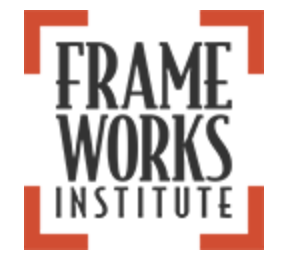
Whatever the educational challenge—improving assessments, personalizing learning environments, or advancing equity—public thinking plays a role in the solution. And the way the issue is framed for the public has a big effect on levels of support and engagement in the issue. During this webinar, staff from FrameWorks Institute will help educators and advocates decide where… Read More ›
Four Feet on the Ground: The Youth-Adult Partnership “Teeter-totter Effect”

The personalization of learning requires the relationship of students and teachers to shift to partnership and shared responsibility. Educational change in Vermont has also opened the door to unprecedented opportunities for young people to be central to change, rather than passive recipients. However, there are few roadmaps for shifting our mental models and practices to… Read More ›
Programming for Personalization: Using Computer Science Resources in Support of a Student-Centered Learning Environment

This e-guidebook provides a set of resources and strategies to help educators empower students to build digital literacy and computational thinking competencies across disciplines. It includes an overview of each resource, how that resource might support student-centered strategies, and examples of how to use the resource in a variety of classrooms. Resources include: Scratch Code Academy… Read More ›
Productive Problem Finding

This resource developed by Distinguished Fellow alumnus Frank LaBanca is designed to introduce “problem finding” as a tool for student-centered learning. When students look and find problems, they engage in a creative process to develop and define an idea for a study. Through problem-finding, students set objectives, define purposes, decide what is interesting and ultimately… Read More ›
Critical Civic Inquiry: Student-Centered Learning
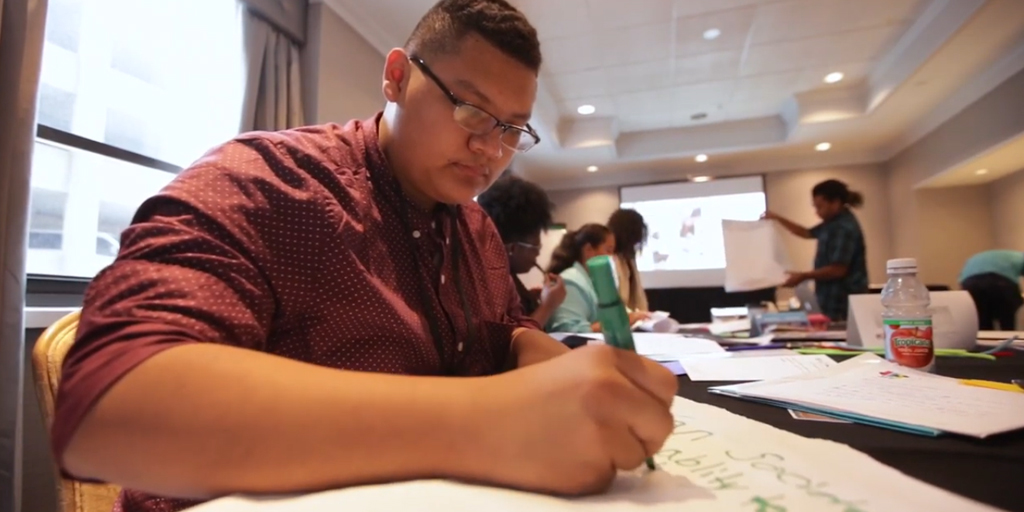
The study has concluded. Read about their data collection, findings and implications for educators and counselors in the field. Learn More Led by Rowan University and University of Colorado, this study investigated two areas of student-centered learning: “How students can be supported to take “ownership” of their learning” and “How learning can occur anytime, anywhere.”… Read More ›
Leadership for Mobile Learning: Creating a Shared Vision
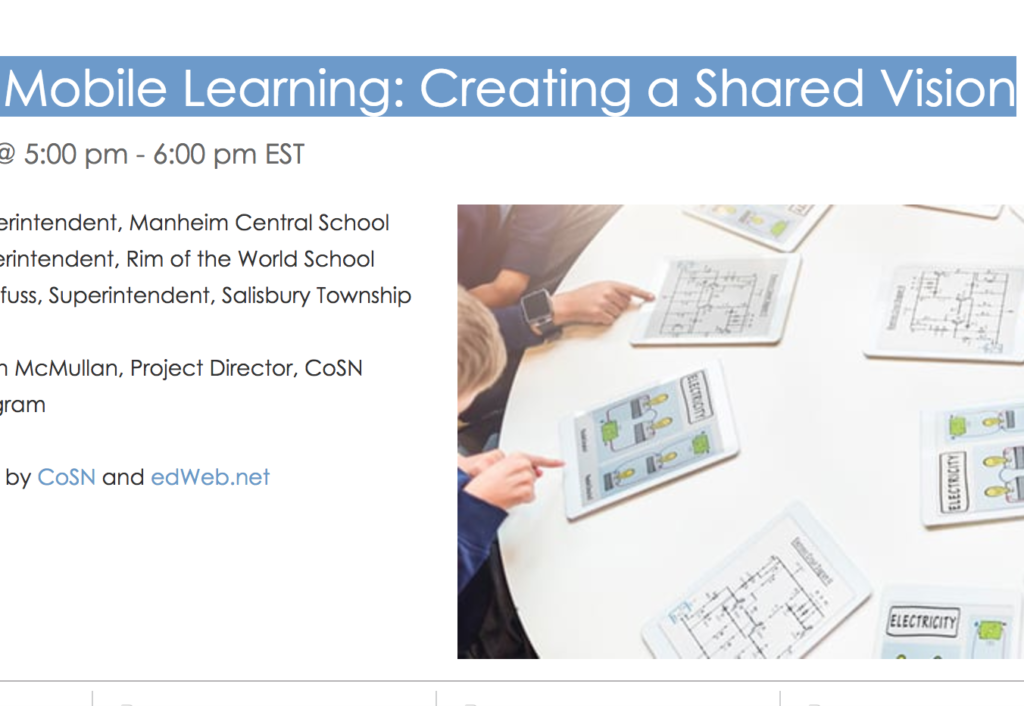
Schools and districts around the country are implementing technology initiatives. However, without a coherent, shared vision for implementation, these project may note deliver the desired impact or worse, simply fail. This edWebinar features district leaders discussing what it takes to successfully deploy, implement and sustain a shared commitment to mobile learning. There will be time… Read More ›
Edutopia’s 2018 Research Highlights
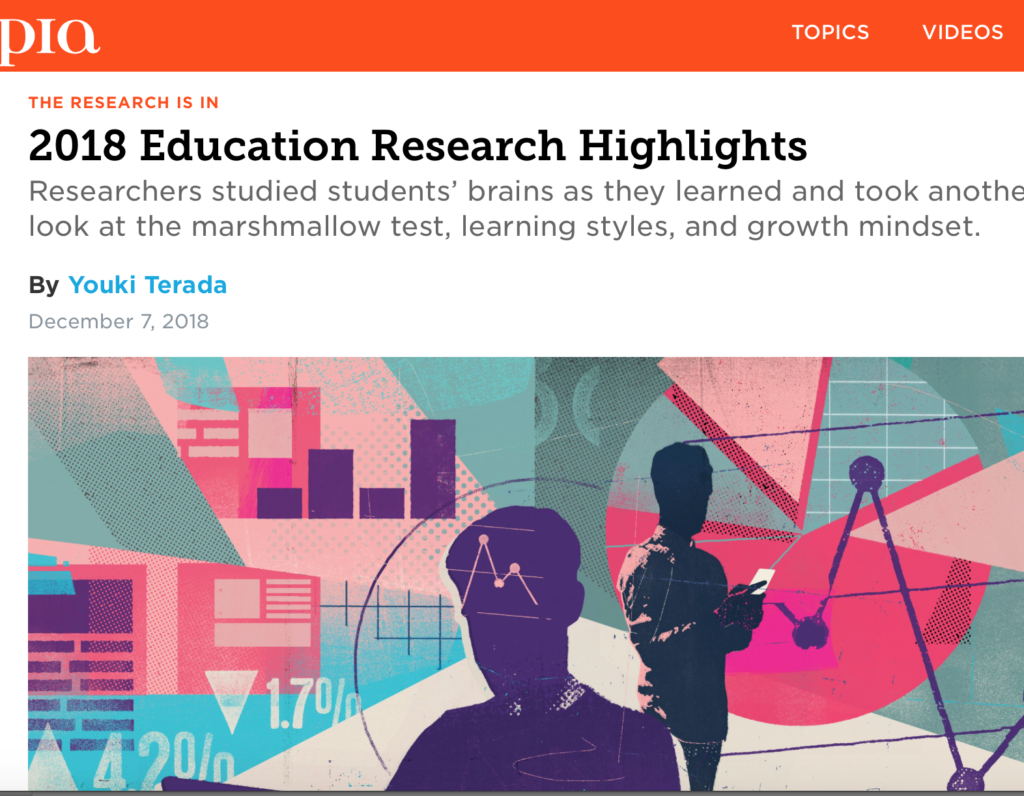
This article summarizes and provides links to important research studies from 2018. The studies are organized into a number of topic areas including: Small classroom changes Learning science A new look at older studies on learning styles, growth mindset, and self-control Disparities in discipline for black boys The contribution of mistakes to learning Teacher well-being Behavior… Read More ›
Digital Promise League of Innovative Schools

This organization connects forward-thinking district leaders from across the country. Members work together on shared priorities, partnering with leading entrepreneurs, researchers, and education leaders to improve outcomes for students and solve challenges facing K-12 schools through learning technology and research. The League of Innovative Schools is: A network of superintendents and district leaders leveraging technology to… Read More ›
Teachers Want Education Research. The Feds Spend Millions on It. So Why Can’t It Get to the Classroom?

The initial results of the Institute of Education Sciences’ listening tour on teacher priorities highlight both an urgent need for new studies—in areas like technology, student trauma, and educational equity—and better outreach on existing research. “In the field research sessions … IES representatives were not allowed to talk. They were just there to listen. And it was fascinating… Read More ›